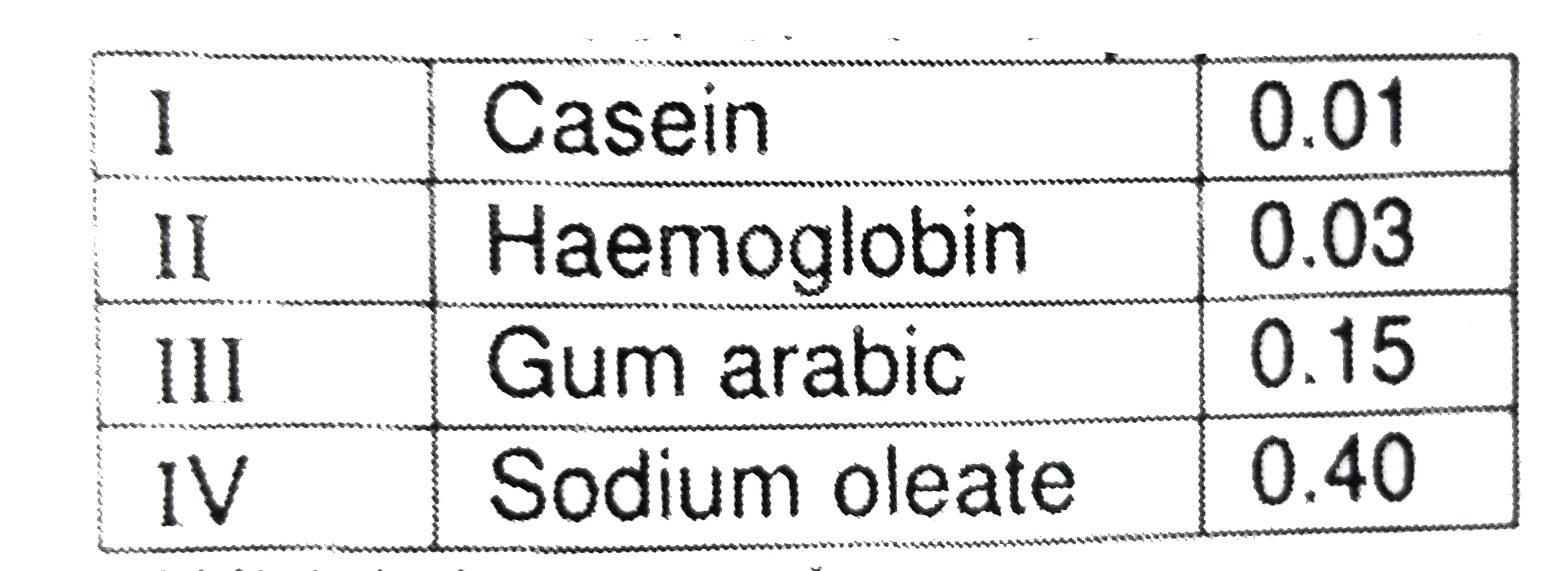An arsenious sulphide sol carries a negative charge the maximum precipitating power fo this sol is possessed by
K2SO4
CaCl2
Na3PO4
AlCl3
The correct Answer is:D
−ve charge sol is coagulated by cation of electrolyte. More the charge on cation, higher the precipitating power.
Topper's Solved these Questions
- SURFACE CHEMISTRYBook:RESONANCE ENGLISHChapter:SURFACE CHEMISTRYExercise:Section - 2
Explore 5 Videos
- SURFACE CHEMISTRYBook:RESONANCE ENGLISHChapter:SURFACE CHEMISTRYExercise:Section - 3
Explore 6 Videos
- SURFACE CHEMISTRYBook:RESONANCE ENGLISHChapter:SURFACE CHEMISTRYExercise:One or More Than One Options Correct Type
Explore 7 Videos
- STRUCTURAL IDENTIFICATIONBook:RESONANCE ENGLISHChapter:STRUCTURAL IDENTIFICATIONExercise:Advanced level Problems (Part-III)
Explore 12 Videos
- TEST PAPERSBook:RESONANCE ENGLISHChapter:TEST PAPERSExercise:FST-3
Explore 30 Videos
Similar Questions
An AgI sol carries a negative charge. The maximum precipitating power is possessed by which of these electrolytes?
View SolutionCadmium sulphide sol has negative charge. The maximum power of coagulation is of:
View SolutionA subatomic particle that carries a negative charge
View SolutionMetal sol is negatively charged. True/False
View SolutionAs2S3 sol has a negative charge. Capacity to precipitate it is highest in:
View Solutionwhich of the following sol is negatively charged ?
View SolutionGold number of some lyophilic sols are :

Which has maximum protective power :
View SolutionArsenic (III) sulphide forms a sol with a negative charge.
Which of the following ionic substances should be most effective in coagulating the sol?
View SolutionThe maximum power to precipitate arsenious suiphide is of
View SolutionWhich of the following sols is negatively charged?
View Solution